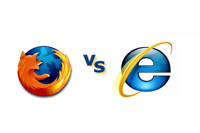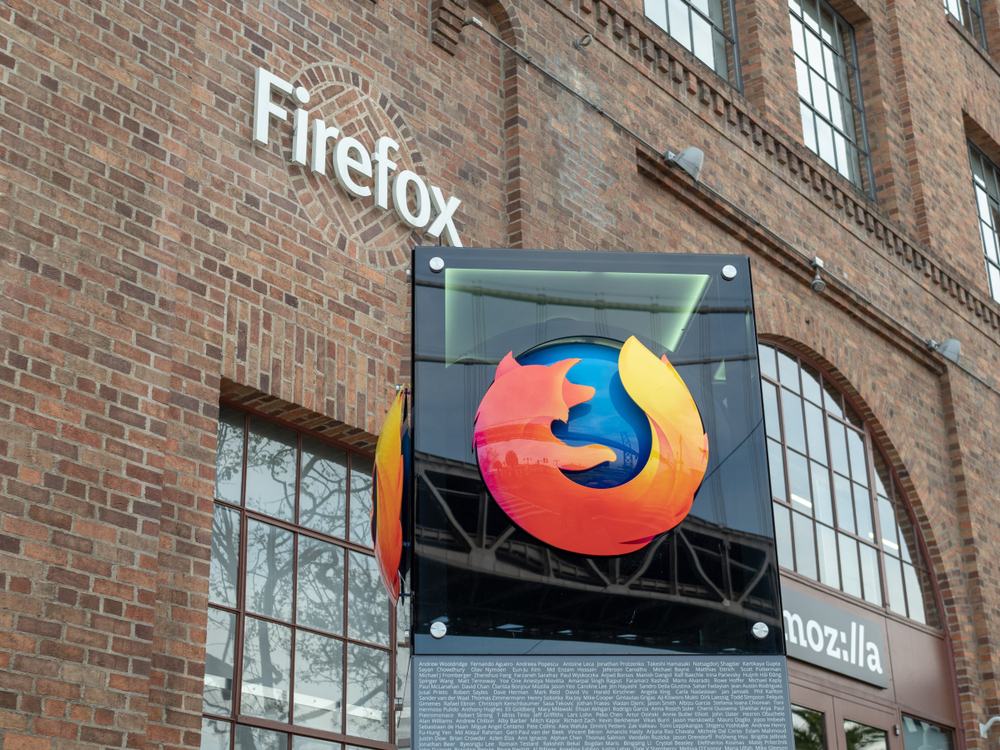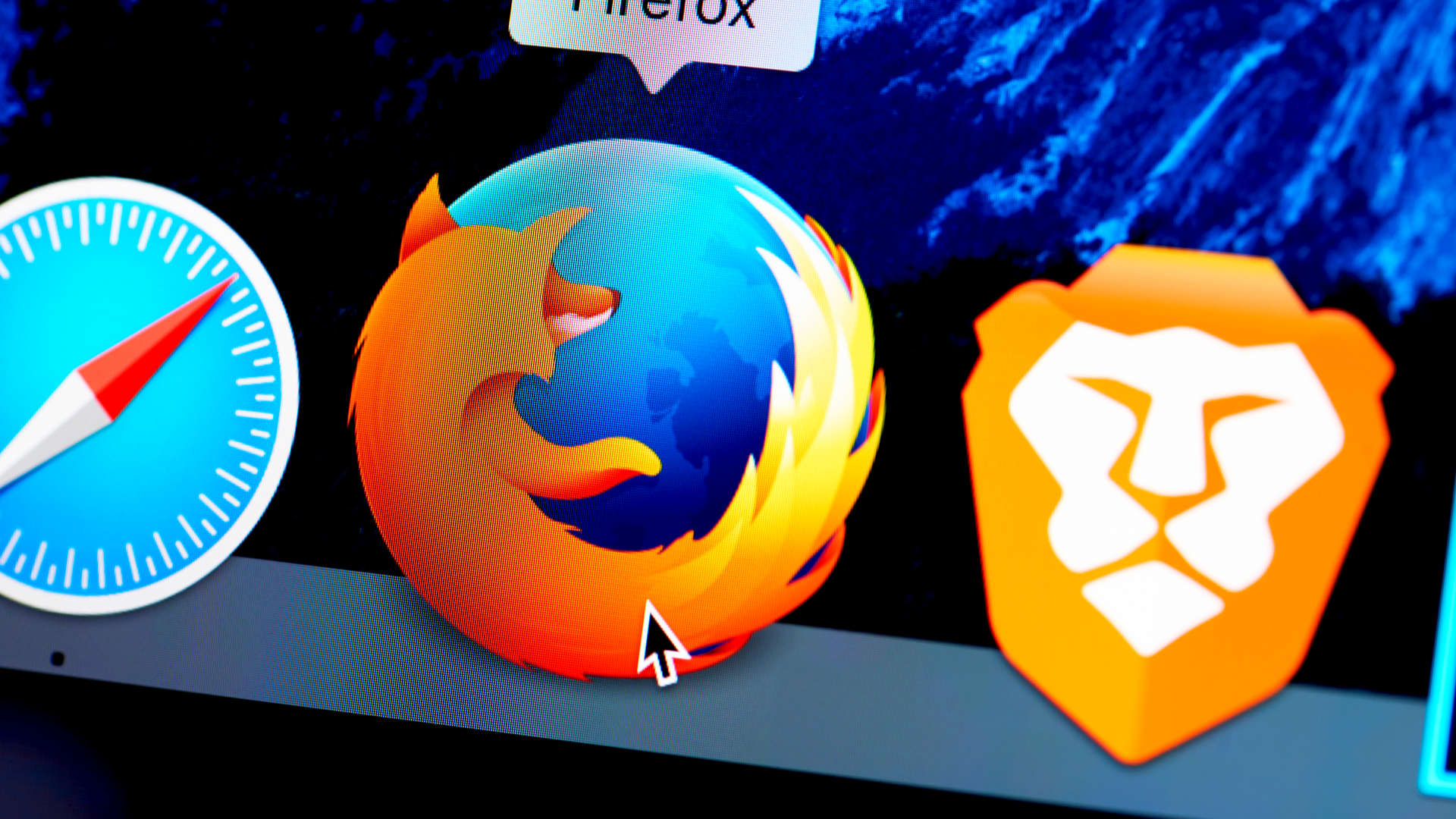Head to head: Firefox vs Internet Explorer
In our latest head to head, we weigh up the web's most popular browsers: Microsoft’s Internet Explorer and Mozilla’s Firefox.


Internet Explorer has a terrible reputation when it comes to security. That's chiefly because IE6 the version that was originally built into Windows XP made it easy for websites to install programs on your PC without asking your permission. It thus became a common route for criminals and mischief-makers to distribute malware, and even today many people use Firefox because they simply don't trust IE.
But Internet Explorer 8 is far more savvy than its ancestor. If a website tries to send you a file (even one that you've requested) IE8 asks for your explicit authorisation before accepting it just like Firefox does.
This works in tandem with the UAC system in Windows Vista and Windows 7, which alerts you when a program attempts to make changes to your system. In theory, therefore, it should be impossible for unwanted software to inveigle its way onto your computer regardless of which browser you use.
Both browsers will even warn you in advance if you click on a link that goes to a site that's known to host malicious software, or that tries to trick you into giving up personal information (a so-called "phishing" site). IE8 naturally uses Microsoft's own database of unsafe sites, while Firefox gets its blacklist from Google.
Yet while both IE and Firefox look rock solid on paper, it's important to realise that neither is infallible. There's inevitably a lag between a phishing site appearing on the web and it being confirmed as malicious. And hackers are constantly looking for ways to trick both browsers into installing their software without confirmation (a delivery mechanism known as the "drive-by download") and they all too often find them. That's why, as we noted above, both IE8 and Firefox receive a steady stream of updates to close down exploits as they're discovered.
In this area there's no real winner or loser: some hacker techniques will work against IE while others target Firefox, but in the grand scheme of things both have full-time teams of engineers working to minimise the risk. So from a security perspective, it doesn't make a huge difference which browser you choose. The important message is that, whichever you opt for, you should run security software as well, because nasties can and will slip through the net.
Winner: Tie
Get the ITPro daily newsletter
Sign up today and you will receive a free copy of our Future Focus 2025 report - the leading guidance on AI, cybersecurity and other IT challenges as per 700+ senior executives
Darien began his IT career in the 1990s as a systems engineer, later becoming an IT project manager. His formative experiences included upgrading a major multinational from token-ring networking to Ethernet, and migrating a travelling sales force from Windows 3.1 to Windows 95.
He subsequently spent some years acting as a one-man IT department for a small publishing company, before moving into journalism himself. He is now a regular contributor to IT Pro, specialising in networking and security, and serves as associate editor of PC Pro magazine with particular responsibility for business reviews and features.
You can email Darien at darien@pcpro.co.uk, or follow him on Twitter at @dariengs.
-
 Cleo attack victim list grows as Hertz confirms customer data stolen
Cleo attack victim list grows as Hertz confirms customer data stolenNews Hertz has confirmed it suffered a data breach as a result of the Cleo zero-day vulnerability in late 2024, with the car rental giant warning that customer data was stolen.
By Ross Kelly
-
 Lateral moves in tech: Why leaders should support employee mobility
Lateral moves in tech: Why leaders should support employee mobilityIn-depth Encouraging staff to switch roles can have long-term benefits for skills in the tech sector
By Keri Allan
-
 Spanish spyware outfit uncovered, develops exploits for Windows, Chrome, and Firefox
Spanish spyware outfit uncovered, develops exploits for Windows, Chrome, and FirefoxNews Google was only able to discover the company after an anonymous submission was made to its Chrome bug reporting programme
By Zach Marzouk
-
 Firefox 95 boosts protection against zero-day attacks
Firefox 95 boosts protection against zero-day attacksNews Mozilla's browser now takes a more granular approach to walling off code
By Danny Bradbury
-
 Mozilla to end support for Firefox Lockwise password manager
Mozilla to end support for Firefox Lockwise password managerNews Replacement service already lined up as browser specialist continues to streamline business
By Bobby Hellard
-
 Firefox available on Microsoft Store for first time
Firefox available on Microsoft Store for first timeNews Gecko-based browser arrives after Microsoft removes restrictions
By Danny Bradbury
-
 Mozilla to cut 250 jobs as part of major coronavirus restructure
Mozilla to cut 250 jobs as part of major coronavirus restructureNews The reorganisation has been made so the company can become faster, more innovative, and find more revenue streams
By Keumars Afifi-Sabet
-
 Why I’m leading a browser double life
Why I’m leading a browser double lifeOpinion There are benefits to using more than one browser
By Barry Collins
-
 Mozilla re-hires veteran Mitchell Baker to serve as CEO
Mozilla re-hires veteran Mitchell Baker to serve as CEONews The interim chair and CEO formally rejoins the organisation after Chris Beard stepped down in December 2019
By Keumars Afifi-Sabet
-
 Mozilla fixes two Firefox zero-days being actively exploited
Mozilla fixes two Firefox zero-days being actively exploitedNews Critical vulnerabilities allow attackers to execute arbitrary code or trigger crashes
By Carly Page